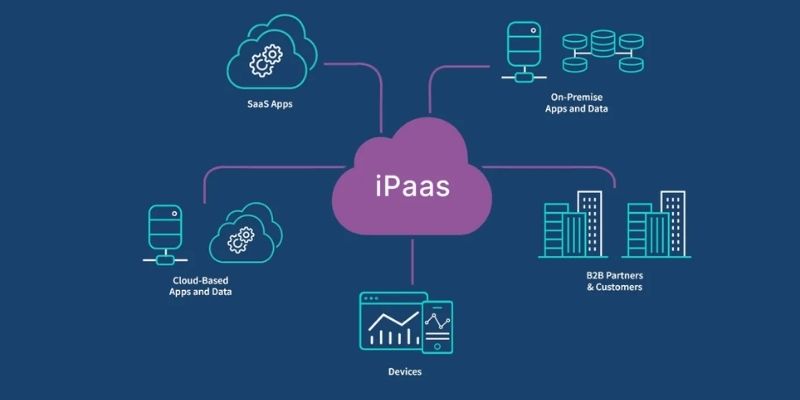OpenSUSE Tumbleweed Integrates Linux 6.14 and OpenSSH 10.0 Security
Advertisement
openSUSE Tumbleweed, the rolling release edition of the openSUSE project, has consistently stood out for its cutting-edge nature and commitment to delivering the most current software to Linux enthusiasts. Tumbleweed integrates two major technological upgrades in its latest update: the Linux 6.14 kernel and OpenSSH 10.0, the latter supporting post-quantum cryptographic mechanisms. This development positions openSUSE as a performance-centric distribution and a forward-looking platform prepared for future cybersecurity challenges.
The inclusion of these technologies reflects the project's ongoing effort to maintain relevance in a fast-paced ecosystem where both innovation and security are critical. With the world inching closer toward quantum computing capabilities and increasingly diverse hardware architectures, these updates are crucial.
The Significance of Linux 6.14 in Tumbleweed
The Linux 6.14 kernel represents a leap forward in terms of functionality, hardware support, and system efficiency. As Tumbleweed’s foundation, the kernel plays a vital role in enabling stable and responsive interactions between hardware and software layers. Its integration signals openSUSE’s alignment with the upstream Linux community and its dedication to maintaining a robust and reliable rolling release.
Extended Hardware Compatibility
One of the standout features of Linux 6.14 is its broadened hardware compatibility. The kernel introduces support for newly released CPUs, GPUs, and system components, particularly in the ARM and RISC-V ecosystems. It ensures users can deploy openSUSE on modern machines without driver-related complications. With broader architecture support, Tumbleweed becomes a more viable choice for high-end workstations and experimental computing platforms.
Performance Gains Across the Board
Kernel-level optimizations in version 6.14 offer improved memory management, better scheduler performance, and more efficient handling of multi-core processing. These updates translate into smoother multitasking, lower latency in input/output operations, and reduced power consumption. Whether the system is used for gaming, server management, or software development, these benefits are widely felt.
Security Enhancements at the Core

Security remains a fundamental focus in Linux kernel development. In 6.14, more rigorous controls are introduced to prevent privilege escalation and memory-based attacks. With refined memory sanitization routines and hardened syscall implementations, this kernel aims to close potential exploit vectors that have grown increasingly sophisticated over time. For a rolling release like Tumbleweed, which always remains on the bleeding edge, such protective layers are indispensable.
Improved Filesystem Stability and Support
Linux 6.14 brings essential updates to key filesystems like Btrfs and XFS, enhancing data integrity, reducing fragmentation, and improving performance on modern storage devices. These improvements help ensure that Tumbleweed users experience faster and more reliable file operations, which are critical for everyday use and demanding workloads.
Post-Quantum Secure OpenSSH 10.0
The most headline-grabbing component in this Tumbleweed update is the arrival of OpenSSH 10.0. While OpenSSH has long been the go-to secure communication protocol on Unix-based systems, version 10.0 introduces a transformative feature: post-quantum cryptography (PQC). With quantum computing poised to disrupt traditional encryption, this step is a proactive defense against future threats.
Introduction of Hybrid Key Exchange
OpenSSH 10.0 in Tumbleweed supports a hybrid key exchange algorithm, blending classical cryptographic approaches with new, post-quantum-resistant methods. This hybrid system includes support for algorithms like mlkem768x25519-sha256, which combines the security of modern elliptic curve methods with a post-quantum lattice-based alternative.
By adopting a hybrid model, OpenSSH ensures backward compatibility while simultaneously future-proofing encrypted sessions. This approach mitigates risks even in the hypothetical case where quantum decryption techniques become viable.
Removal of Obsolete Algorithms
This version also marks the deliberate phasing out of outdated encryption methods. The DSA algorithm, long considered insecure by today’s standards, has been officially deprecated. Its removal reflects a broader trend across open-source software to eliminate weak cryptographic practices, and it reinforces Tumbleweed’s reputation as a security-conscious distribution.
Streamlined Codebase and Improved Efficiency
OpenSSH 10.0 isn't just about cryptographic strength—it also brings refinements in connection speed, session negotiation, and stability. The updated codebase features performance enhancements that reduce connection setup time and decrease CPU overhead, particularly beneficial in resource-constrained environments or systems handling multiple simultaneous SSH sessions.
Expanded Key Type Support for Compatibility and Flexibility
OpenSSH 10.0 broadens its support for modern key types, including ed25519-sk and ecdsa-sk for hardware-backed security keys. It allows users to integrate stronger, hardware-based authentication mechanisms alongside post-quantum algorithms, enhancing overall security while maintaining flexibility for different deployment scenarios.
Broader Ecosystem Benefits in the Update

Beyond the kernel and OpenSSH enhancements, the latest Tumbleweed snapshot delivers improvements across a range of core packages and development tools, ensuring that every layer of the system benefits from increased stability and functionality.
Development Toolchain Updates
Tumbleweed’s development stack receives a simultaneous refresh, including newer versions of GCC, GDB, and system libraries. These updates empower developers with the latest language features, debugging capabilities, and performance profiling tools. For a distribution that appeals to developers, such updates are critical for maintaining usability and trust.
Improved Multimedia and Graphics Handling
This update includes improved drivers and libraries for graphics rendering. With the upgraded Mesa stack and better DRM support in the kernel, users on modern GPUs will notice enhanced visual performance and reliability. Applications using GPU acceleration, such as video editors and 3D modelers, benefit directly from these updates.
System and Desktop Component Enhancements
KDE, GNOME, and XFCE environments receive package-level updates, preserving desktop responsiveness, memory usage, and UI consistency. In addition, utilities such as rsyslog, iproute2, and GTK4 are updated for better performance and feature completeness. These system-level refinements ensure that Tumbleweed remains polished on both ends—kernel and user interface.
Conclusion
With its latest update, openSUSE Tumbleweed solidifies its role as a technologically progressive and security-minded Linux distribution. The Linux 6.14 kernel introduces powerful performance, broader hardware compatibility, and critical security improvements. OpenSSH 10.0, with its hybrid post-quantum cryptography, leads the charge into a new era of encrypted communication. Together, these changes ensure that Tumbleweed users enjoy the latest Linux performance while being equipped for long-term digital security.
On this page
The Significance of Linux 6.14 in Tumbleweed Extended Hardware Compatibility Performance Gains Across the Board Security Enhancements at the Core Improved Filesystem Stability and Support Post-Quantum Secure OpenSSH 10.0 Introduction of Hybrid Key Exchange Removal of Obsolete Algorithms Streamlined Codebase and Improved Efficiency Expanded Key Type Support for Compatibility and Flexibility Broader Ecosystem Benefits in the Update Development Toolchain Updates Improved Multimedia and Graphics Handling System and Desktop Component Enhancements ConclusionAdvertisement
Related Articles

No-Code Development: What It Is and How to Start Building Without Code

Which Is Better for Your Team in 2025: Asana or Monday?

Which Project Management Tool Is Right for You in 2025: ClickUp or Asana?

Top 3 Google Tools for Better Communication

JetBrains to Retire Aqua IDE Due to Low User Adoption and Feedback

What Is DeepSeek and Why Should You Care?

iPaaS Demystified: What Integration Platform as a Service Really Means

Is Zoom or GoTo Meeting the Right Video Conferencing Tool for You in 2025?

Get Quick Help to Solve Movavi Screen Capture Problems

8 FLV Recorders That Help You Save Streaming Videos

Understanding GPT: Everything You Need to Know

 novityinfo
novityinfo